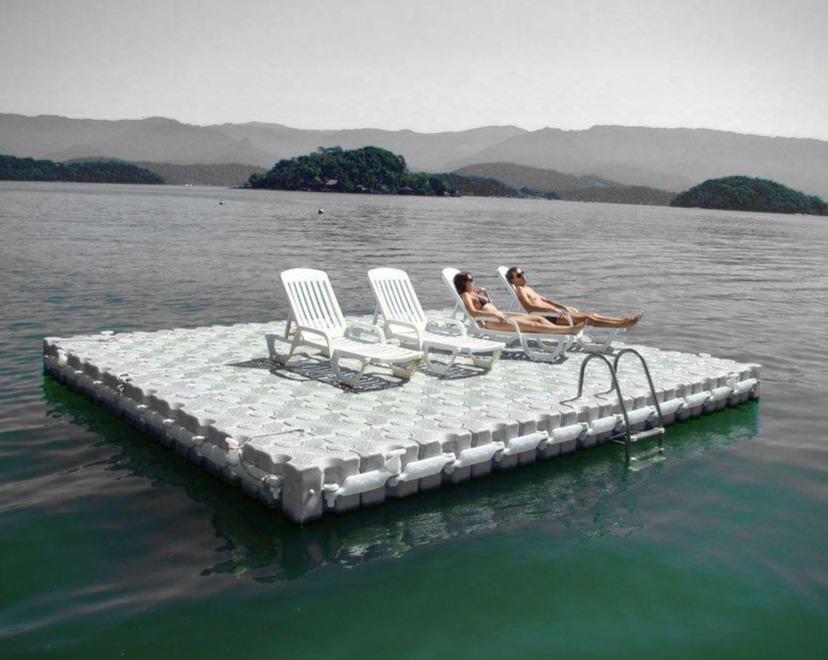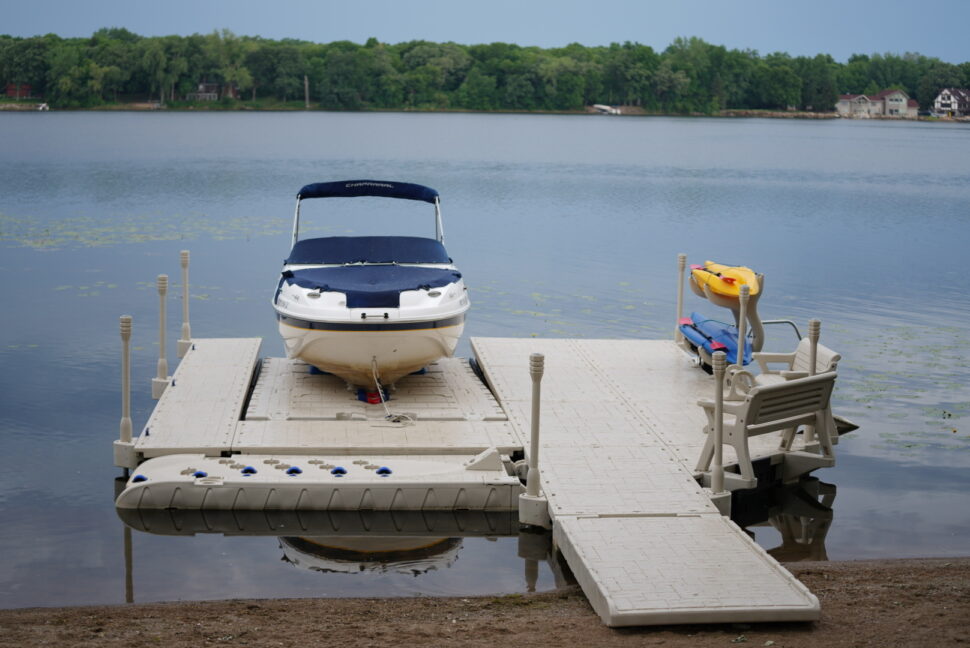The Ultimate Overview to Selecting the very best Floating Docks
Choosing the ideal floating dock calls for a thorough understanding of different aspects that affect both efficiency and longevity. Aspects such as dock kinds, materials, and crucial attributes dramatically impact your decision-making process.
Comprehending Floating Dock Kind
When choosing a floating dock, it is important to recognize the numerous kinds offered, as each offers distinct functions and applications. Floating docks mostly come under three classifications: modular, stationary, and pontoon docks.
Modular docks are made up of specific sections that can be quickly constructed or reconfigured, making them excellent for altering water degrees and diverse usages, such as recreational activities or industrial procedures. Their versatility allows for customization based upon certain demands.

Pontoon docks are identified by their resilient structure, usually composed of numerous pontoons that provide security and support. They are particularly fit for larger vessels and are typically utilized in marinas or for beachfront buildings. Comprehending these kinds aids in picking one of the most ideal floating dock to fulfill certain needs, guaranteeing optimal performance and safety.
Key Materials for Resilience
Choosing the ideal products for floating docks significantly influences their sturdiness and longevity. The most usual products include timber, plastic, metal, and composite materials, each offering distinctive advantages and restrictions.
Timber, often favored for its visual allure, calls for regular maintenance to withstand dampness and decay. Pressure-treated lumber can boost resistance to rot, yet it might still be susceptible to pests and weathering.

Plastic docks, made of high-density polyethylene (HDPE), are immune to deterioration, UV radiation, and influence, making them a preferred selection for coastal environments. Their lightweight nature additionally facilitates easy installation and moving.
Steel docks, commonly built from light weight aluminum or galvanized steel, provide outstanding strength and toughness. They are resistant to rust, specifically when dealt with, however might require extra insulation to stop warmth build-up in hot climates.
Composite products, integrating wood fibers and plastics, provide the benefits of both timber and plastic, standing up to wetness and fading while needing minimal maintenance. - floating dock services
Inevitably, the option of products must line up with environmental conditions, meant use, and upkeep preferences to guarantee the floating dock remains practical and aesthetically pleasing gradually.
Important Functions to Think About
While the choice of materials is critical, considering vital functions for floating docks is just as important to guarantee ideal performance and user complete satisfaction. One crucial function to assess is the dock's buoyancy capability, which figures out just how much weight it can sustain without immersing. floating dock services. This is vital for fitting watercrafts, personal boat, and also leisure activities
In addition, portability is a considerable consideration. Relying on your requirements, you might desire a dock that is simple to deliver and disassemble, specifically if you intend to transfer it seasonally. Stability is one more crucial function; a properly designed floating dock must decrease movement triggered by wind and water currents, supplying a safe system for users.
Safety and security features, such as non-slip surface areas and rounded sides, are also essential to protect against mishaps, especially in wet problems. Additionally, consider the accessibility of devices, such as ladders, cleats, and bumpers, which can improve the performance of your dock.
Installation and Maintenance Tips
Establishing up and keeping a floating dock requires cautious preparation and interest to detail to guarantee its longevity and optimum efficiency. Begin by choosing a suitable place that reduces exposure to solid currents and waves, which can cause deterioration. Make sure that the water deepness suffices for the dock's height and that it is secured safely to stop motion.
During installation, comply with the manufacturer's standards very closely, as inappropriate setting up can endanger stability. Usage premium products immune to deterioration, such as Continue light weight aluminum or dealt with timber, to improve durability. Regularly examine all parts, consisting of drifts, ports, and securing systems, for signs of damages or wear.
If your dock utilizes flotation tools, ensure they remain undamaged and complimentary from slits. By sticking to these installment and maintenance suggestions, you can enjoy a useful and dependable floating dock for years to come.
Budgeting for Your Dock
Budgeting for your dock is a critical action that can substantially impact your total satisfaction and investment in a beachfront building. Developing a clear budget plan aids you browse the numerous options offered and ensures you make informed choices that line up with your economic abilities.
Begin by identifying the size and layout of the dock you need, as these variables will considerably influence the price. Floating docks can vary dramatically in cost, relying on materials, buoyancy, and functions like accessories and ramps. Research different suppliers and suppliers to contrast costs and understand the marketplace value.
In addition to initial expenses, consider ongoing expenses such as maintenance, insurance policy, and prospective repair services. Assign funds for these repeating expenses to prevent surprises down the line. It's also prudent to budget for any required licenses or evaluations, which might be needed by local policies.
Lastly, keep in mind the possible roi. A well-planned dock can boost your residential property's you could try here value and charm, offering a positive financial impact in the long term. By budgeting effectively, you can make certain that your dock fulfills your demands without compromising your economic stability.
Final Thought
In verdict, selecting the excellent floating dock necessitates a comprehensive analysis of various variables, consisting of dock kinds, materials, important features, and installment procedures. Focusing on resilience and compliance with local laws inevitably boosts functionality and home value. Mindful consideration of financial restraints will certainly even more ensure an audio financial investment. By sticking to these standards, individuals can make informed choices that advertise long-lasting fulfillment and functionality in marine settings.

While the option of materials is critical, thinking about vital features for floating docks is similarly crucial to guarantee optimum Get More Information performance and customer complete satisfaction.Establishing up and keeping a floating dock calls for cautious preparation and attention to information to ensure its long life and optimum efficiency. Floating docks can vary significantly in cost, depending on materials, buoyancy, and functions like ramps and devices.In conclusion, choosing the ideal floating dock demands a complete evaluation of various elements, including dock types, materials, crucial features, and installation procedures.